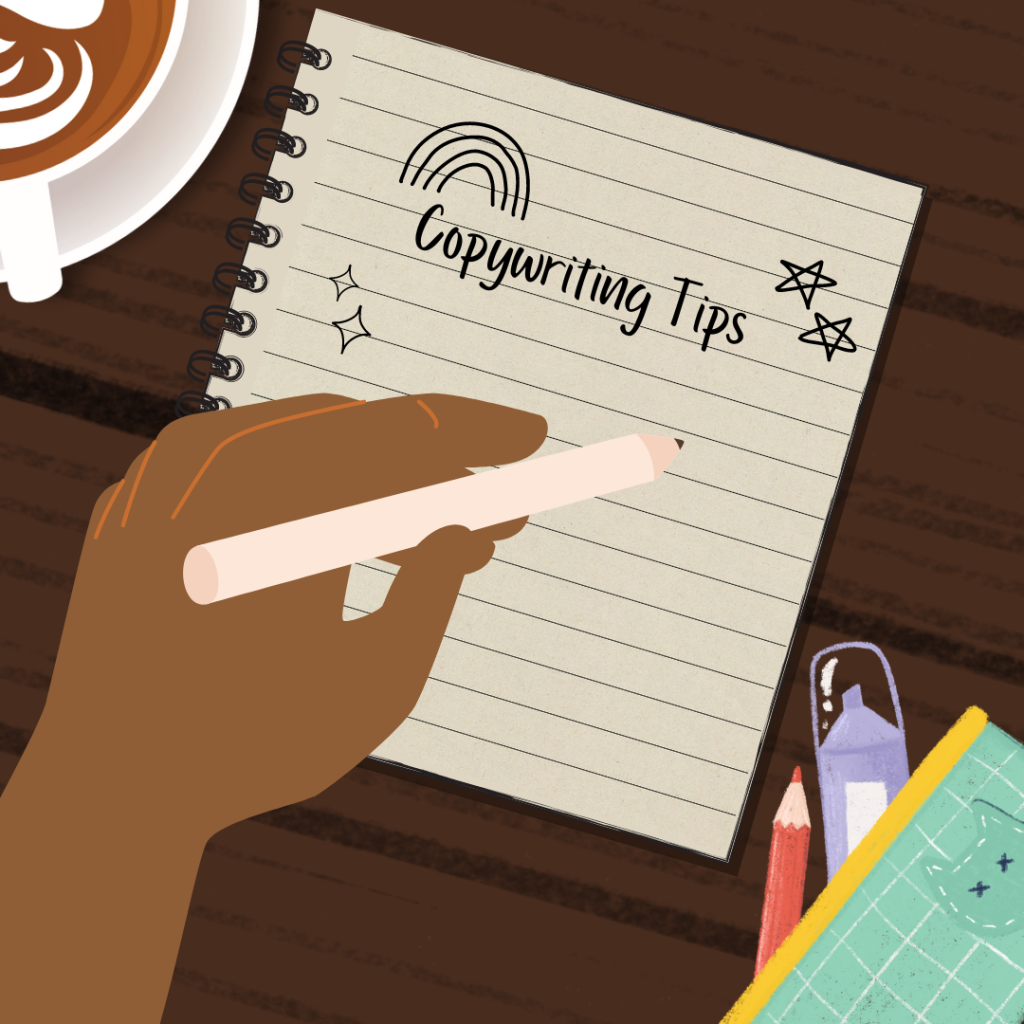Many copywriters have their opinions on Chat GPT. Some are worried about being replaced by AI.
But I’m not.
Why? Because I can do something that Chat GPT will never be able to do.
Connect with other people.
It doesn’t matter how amazing Chat GPT or other AI systems become in the future. They’ll never be able to relate to other humans.
And that’s why copywriters are here to stay.
As a copywriter, the best thing that you can do is find better ways to relate to your audience. The more connected your audience feels to your content, the more eager they are to learn more about your product or service.
That’s why the words that you use in your marketing content matter. You want to have one question in mind when creating content: How does this piece connect to my target audience?
Using Psychological Triggers In Copywriting
Guess what? Just like your readers, you’re human!
And that already makes copywriting so much easier for you.
Before you were a copywriter, you were (and probably still are) a consumer. You buy certain products and use certain services with one goal in mind: to make your life easier.
And your target audience wants the same thing. But they don’t want to be sold to. They want to feel heard.
Using certain psychological triggers in your copywriting will help you build a stronger connection with your audience. But what are some of the psychological triggers that copywriters can use?
Here are the top 5 that can help you better connect with your audience.
Honesty

This is one of the most powerful elements that you can use in all of your writing, honestly.
You want to make sure that all of your marketing content is honest. Honesty is the first building block in any relationship.
If you wouldn’t even want to talk to someone who’s dishonest, why would you want to buy something from them?
Whatever you’re promoting, you want to be completely honest with your audience. And they can tell if you’re being honest or not.
It doesn’t matter if you’re promoting a book or a software program. Consumers can tell when someone is exaggerating.
If a product doesn’t do something, don’t lie and say that it does. This may seem like common sense, but common sense goes out the window when companies are trying to sell something.
The best thing that you can do for your audience – and yourself – is to tell the truth with each sentence you write. The more honest you are with your writing, the more you’ll be able to establish the next psychological element: authority.
Authority

If you weren’t feeling well, you would schedule a visit with someone knowledgeable like a doctor, right?
Let’s take it a step further. If the issue you were experiencing was related to your skin, you would want to speak with a dermatologist, right?
The same is true for copywriting.
You want to be connected with someone who is credible and knowledgeable in their particular niche. Instead of focusing on general industries, you want to establish authority over a specific niche.
The more specific your niche, the easier it will be for you to connect to your target audience.
When writing copy, you want to establish your business’s authority with your audience. You want your audience to know why you are qualified to solve their problem, why you’re trustworthy.
You can establish authority with your audience no matter the size of your business. Establishing authority is another way to use the next psychological element: value.
Value

No matter what type of copy you write, you want to add value to your audience.
Value is everything in the marketplace. It is what consumers want the most from whatever they’re purchasing.
You want your target audience to know that they will get the most value out of whatever product or service you provide. For most people, value could come in the form of convenience.
Your product may cause a certain sense of comfort or pleasure for your audience. Your service may help increase your customer’s productivity.
Your product may improve your customers’ health.
Whatever the value, you want to communicate it to your customers.
Sharing the value that your product or service provides is another way to justify a purchase for the customer. No one wants to get something for nothing.
Which leads into the next psychological trigger: justification.
Justification

You want to keep justification in mind when designing your copy.
Why should a customer part with their money? What do they get in exchange for it? And more importantly, why should they purchase with you?
Justification helps you answer these questions for the customer.
Customers have so many reasons why they shouldn’t do something. If the reason why they should is powerful enough, those other reasons won’t matter.
Again, this is an excellent element that can help you connect with your audience. There are so many ways that you can justify a product or service for your customer.
You may be able to save additional time or money for your customer. The product or service you’re offering could make your customer’s life better.
Or maybe they just work so hard that they deserve to treat themselves.
Knowing your customer in and out can help you use justification to your advantage. You want to get inside the mind of your customer as much as possible and understand what it is they truly want.
Which leads to the last psychological element that you can use: familiarity.
Familiarity

You want to create copy that establishes familiarity with your audience. The more your audience becomes familiar with your brand, the more they are likely to trust you.
When your copy is consistent and familiar, your audience feels more confident doing business with you. They feel more comfortable trusting you not just with their money but with their vulnerabilities.
You can use phrases and words that make your readers more comfortable. A simple Google search can show some common words that help evoke a sense of familiarity.
Another way that you can establish familiarity is with consistency. The more that you use a particular phrase in your marketing, the more that it will remain in the minds of your customers.
It’s okay to revise your marketing content, but you don’t want your brand to become completely unrecognizable. Like the old saying goes, if it’s not broken, don’t fix it.
Final Thoughts
With these 5 psychological triggers, you’ll be able to compete against any AI.
Incorporating honesty, authority, value, justification, and familiarity into your writing can help you build a better connection with your audience.
And there’s even more psychological triggers that you can use with your copywriting!
These psychological triggers can be found in The Adweek Copywriting Handbook by Joseph Sugarman. You can purchase a copy by clicking on my affiliate link: https://bookshop.org/a/85810/9780470051245
Share your thoughts about these psychological triggers in the comment section below.








Leave a comment